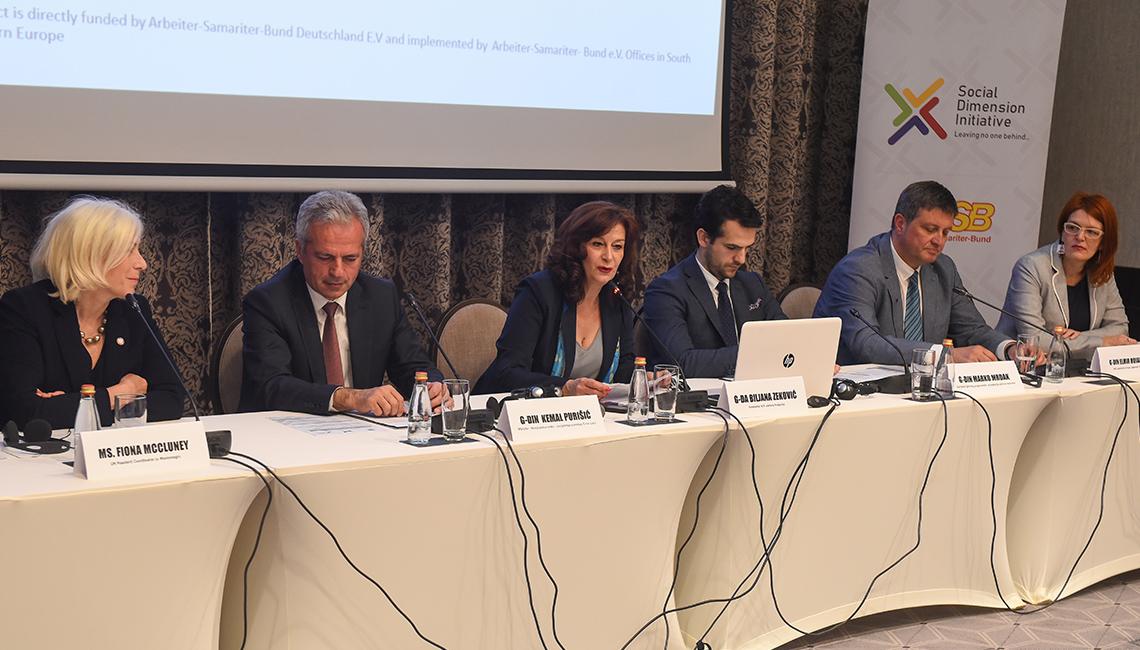
After successful national conferences under the SDI project held in Tirana and Pristine, third conference was held in Podgorica, Montenegro on May 10th. The event „Leaving no one behind in the process of EU integration“ was organized by Arbeiter Samariter Bund South East Europe and national partner SOS Telephone Podgorica, together with Ministry of Labour and Social Welfare of Montenegro.
“Montenegro has made progress in most areas relating to social and children’s protection, but still faces complex challenges, arising from social inclusion, poverty, unequal treatment and access to all of us when it comes to employment and social protection“was key message on this event, that gathered up to 100 patricipants, reperesetatives of the respective Ministery, regional civil society and media as well as representatives of the EU institutions and other international partners.
Director of SOS Telephone Podgorica, Biljana Zekovic, when speaking about social protection of particularly vulnerable population categories, said that over 80% services provided by NGOs. She pointed out that when it comes to social protection, without the presence of non-governmental organizations, as key players in the provision of services, it is not possible to be done.
“Many things have changed, since NGOs were not supported in the licensing process that requires a strong capacity related to the management and technical resources, which is necessary to provide to obtain a license, they did not have sufficient resources and fund to operate its services “, explained the Director.
According to her words, in the meantime the things have changed in way that Ministries provide technical, financial and management support to organizations, “so that part of the organization can breathe easily“.

“However, main problems are small local organisations that do not have sufficient resources, although they are very significant, due to their direct access to the users, as they have for years of experience and energy, but they don’t have strong financial and human capacity to apply for the funds, ” underlined Mrs Zekovic, adding that for obtaining this funds, organisations must have experience and prove to have strong financial management.
Minister of Labour and Social Welfare, Kemal Purisic, assessed that progress in the area of labour and social protection is made, asserting that the Department will continue in that direction, “in order to provide adequate support to the national level in the process of gaining skills for employment and empowerment the most vulnerable category for independent living and greater social inclusion “.
He said that further work on a cooperation between the local administrations in creating conditions for decentralized provision and financing of social services and child protection, will improve in accordance to the user’s needs.
“In 2018. year we issued 19 licenses for social service providers for activities of social and child protection, and the process is further accelerated this year, so it has so far issued an additional 13 licenses for the performance of social and child protection “, said Purisic.
He explained that according to the law on NGOs, in three priority areas, Ministry in 2018. year allocated significant funds for the implementation of projects in the areas of social care for children and young people, assistance to elderly persons, as well as projects that contribute to the development of support services for disabled people.

“We recognize the importance of improving the non-institutional forms of support for vulnerable groups, so through annual competitions for 2019. year is enabled for civil society organisations to obtain support in building and improving facilities for the provision of social services and child protection, and the process of obtaining licenses for the performance of activities and the provision of social protection for building organizational, human, programmatic, technical and other facilities, “said Purisic.
UN Resident Coordinator and UNDP Resident Representative for Montenegro, Fiona McCluney, said that the principle of leaving no one behind is often describe for social inclusion.
“In Montenegro, social inclusion is one of the four strategic areas that the UN helps and deals with. In this strategic area of cooperation, the UN and Montenegro joined to ensure that their citizens have good systems of health, education, protection and that they have the right to decent jobs. “McCluney.
She assessed that Montenegro has quite advanced in most areas, indicating that the country continues to face a very complex challenges from social inclusion, poverty, unequal treatment and equal accessibility for all, when it comes to employment and social protection.

“Working on these problems is only possible if we have a strategic long-term planning. Development of intelligent progressive politics will enhance all of our efforts, “McCluney concluded.
Member of the European Parliament and Chairman of the Board of ASB Germany, Knut Fleckenstein said in video message that he will continue to support the Western Balkan countries and to assist them in joining the EU.
„Already at the Regional SDI Conference held in November 2018 in Belgrade, with all Ministers in charge of the social policy from Western Balkans,we have signed the Declaration on Improving Social Policy in the Western Balkans. Today, our meeting in Montenegro, shows that we are ready for second step. It is time to act. Together with Mr. Purisic and our national partner SOS Podgorica, 7 Mayors and local NGOs we want to start 21 concrete project and to show that social progress is possible. It is about cooperation between Administration, local NGOs and international support“said Fleckenstein.
Montenegro’s Deputy Chief Negotiator with European Union, Marko Mrdak, said that the leaving no one behind principle is particularly sensitive, stating that he has a certain sensible approach to Chapter 19 Social Policy and Employment.
“It’s about a chapter that applies to us all on a daily scale and refers to the most important segments of the functioning of one society and the state as a whole. Equitable access to social services, an advanced social protection system, educated personnel, a high employment rate are a priority that we are trying to achieve “, Mrdak said.

Speaking about the Law on Labor, Mrdak pointed out that through this act citizens of Montenegro will achieve protection in the same way as EU citizens, “which will enable protection of young people at work, protection of employees in case of insolvency of their employers, and when it comes to organization of working hours “.
The Regional director of the German organization ASB Southeast Europe, Elmir Bojadžić, said that initiative has main goal to attract and generate maximum support, by the EU institutions, regional and national actors as well, to provide support of the sector of human resources, as well as welfare sector.
“We have devised that to do through empowering partnership between civil and private sector, regional cooperation, through exchange of experiences to improve the mechanisms of solving problems in the social sector, as well as focusing and production of better environments in the social sector, directly impacting on human itself”, added Bojadzic.
“On political level the goal is to increase EU visibility on regional level, directly focused on less developed local communities” pointed ASB Director.
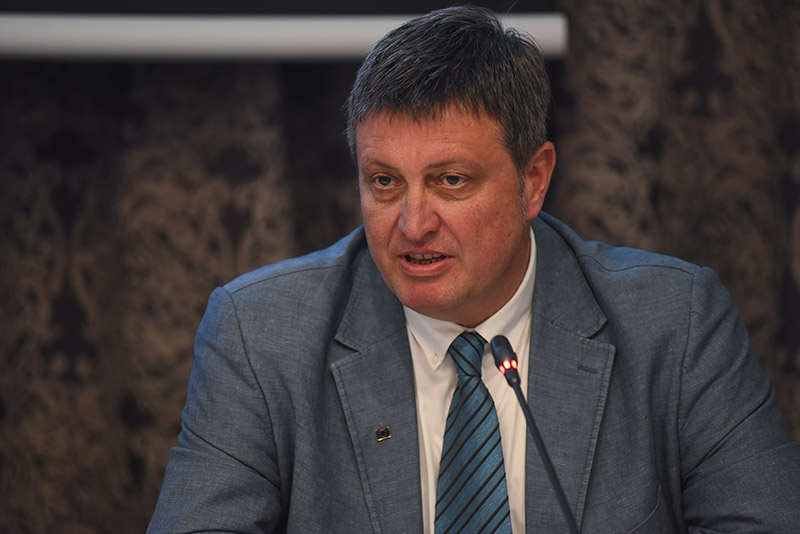
Speaking of the programmatic level, Bojadzic said we should advocate stronger, better and more complex allocation of financial funds within the accession mechanism between 2020. And 2027.
Independent consultant, Aleksandra Gligorović, explained that situation analysis was conducted in every SDI country, showing the concern for the socio-economic situation in all these countries.
“We have collected basic information about the economic situation, poverty, as well as the EU’s own support. When it comes to economic growth, there is a crisis in 2009 and 2012, and then economic growth was negative, while in the coming years it is growing “,Gligorović said.
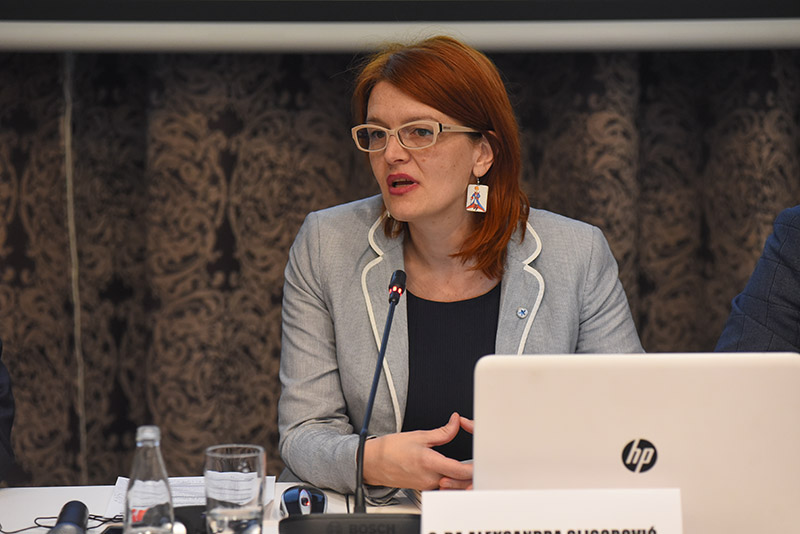
She pointed out that the analysis showed that some groups are more vulnerable when it comes to employment.
“Unemployment in women and young people is extremely pronounced. On the other hand, there are certain specific groups of persons with disabilities, Roma who are also less represented among the employees. The ministry and NGOs create their programs in accordance with these needs, “Gligorović concluded.
Beside key speakers, place on the Conference took also Mayors of all Municipalities under the SDI project, presenting their project proposals that will be developed under this Initiative. It is planned to create up to 21 ready-to-be-funded project proposals.
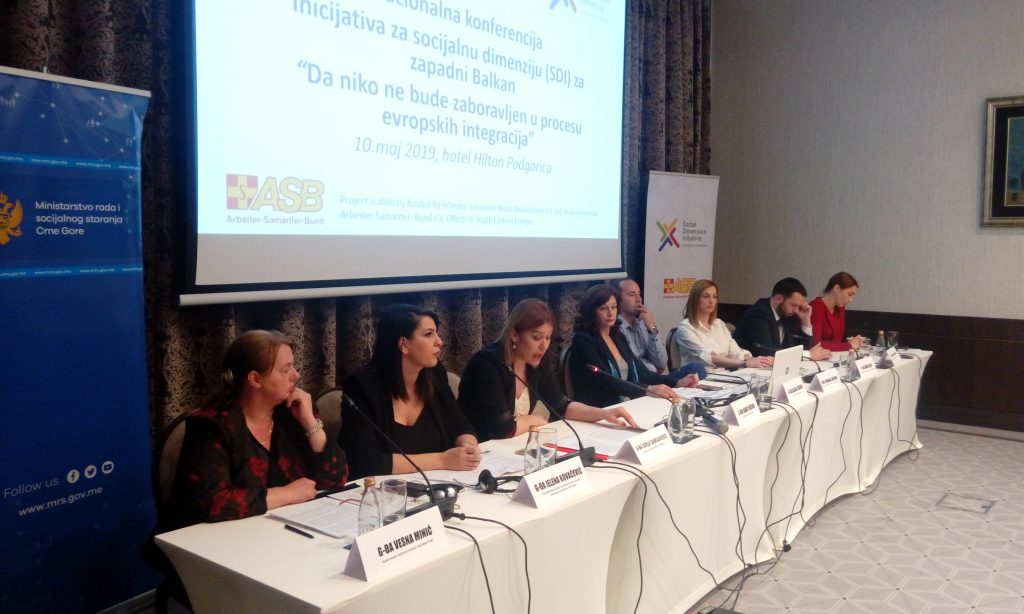
The Social Dimension Initiative was launched in 2018 as part of the endeavor of the ASB and local civil society organisations from the Western Balkans, and supported by a group of distinguished members of the European Parliament, to enhance dialogue between the civil sector, citizens and political elites both in European Union (EU) and WB on the necessity of stronger social dimension of the EU integration for WB countries. Already at the Regional Conference held in November 2018 in Belgrade, the SDI gathered Ministers in charge of the social policy from Western Balkans, regional civil society and media as well as representatives of the EU institutions and other international partners have expressed their firm commitment to support the Initiative. On this occasion, the Declaration on Improving Social Policy in the Western Balkans was signed by all WB social Ministers and constructive dialogue initiated furthering improvement of social and employment policies and measures.
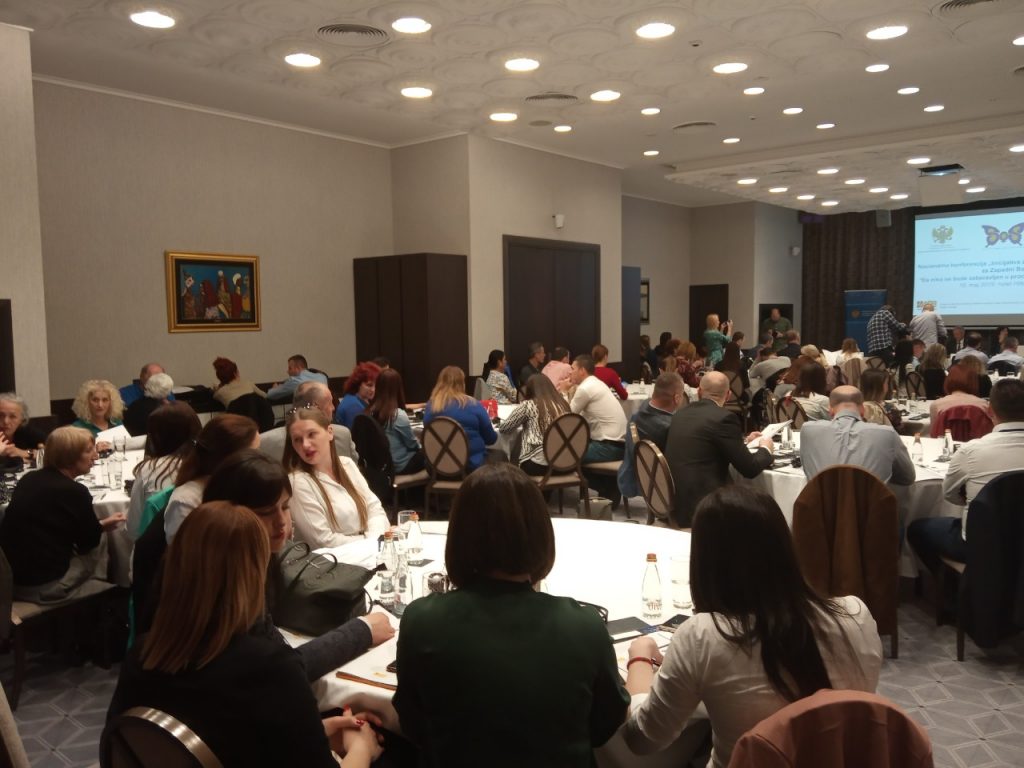
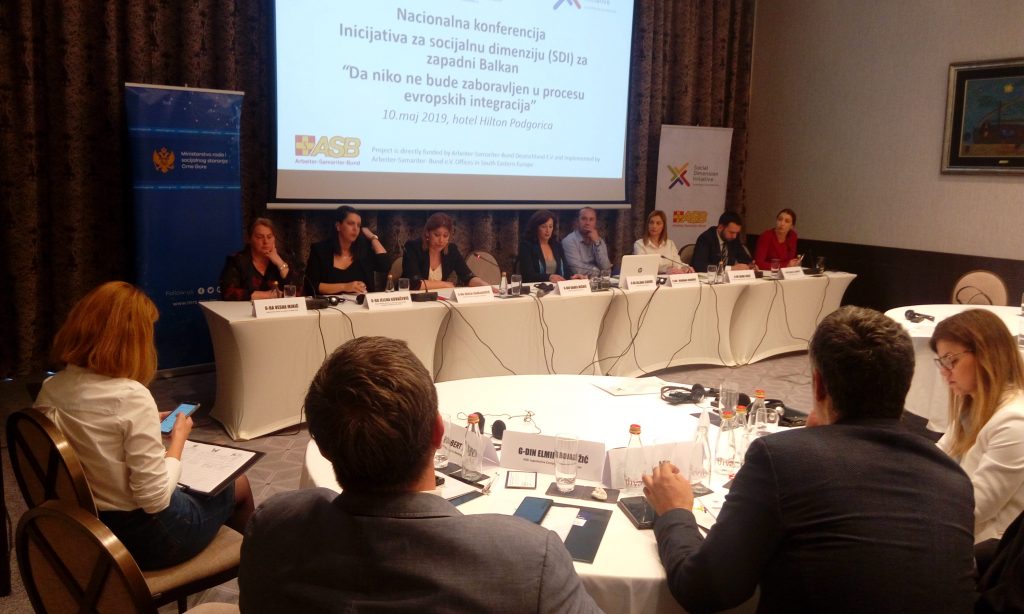
Through the Initiative for the Social Dimension of EU integrations, implemented by ASB South East Europe together with national partner organisations, around 200 ready-to-be-funded social project ideas from 65 municipalities nominated by line Ministries from WB countries will be developed. The regional portfolio will be prepared for fundraising and also as the advocacy tool for enhanced funding opportunities in social sphere for the WB.
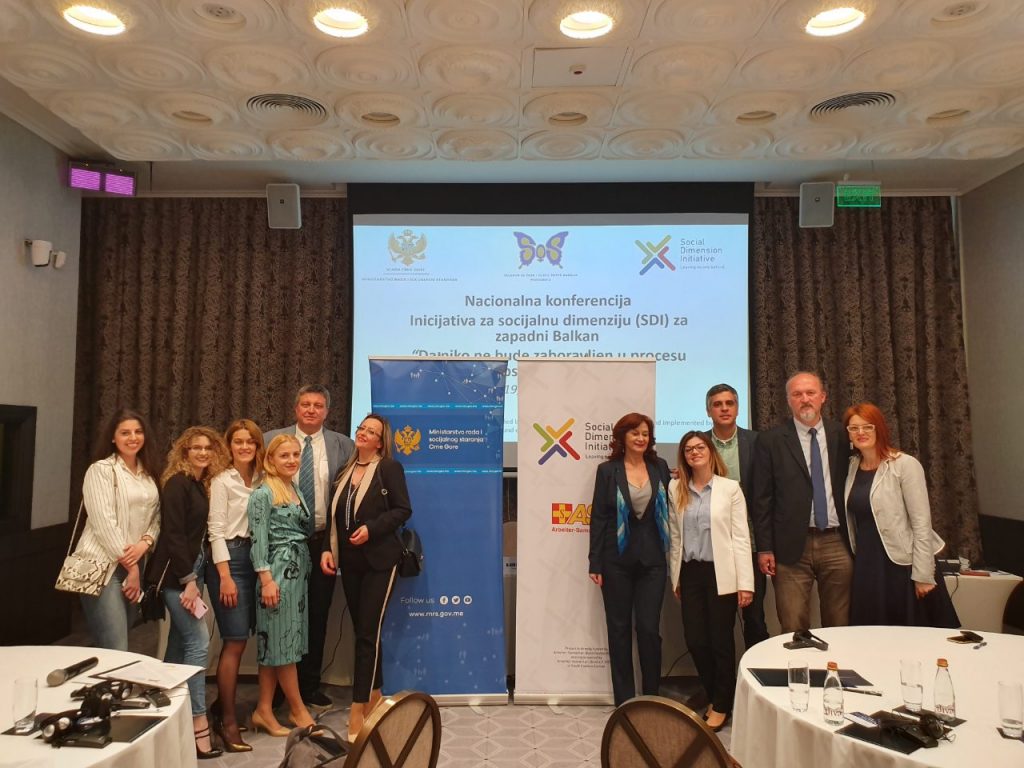
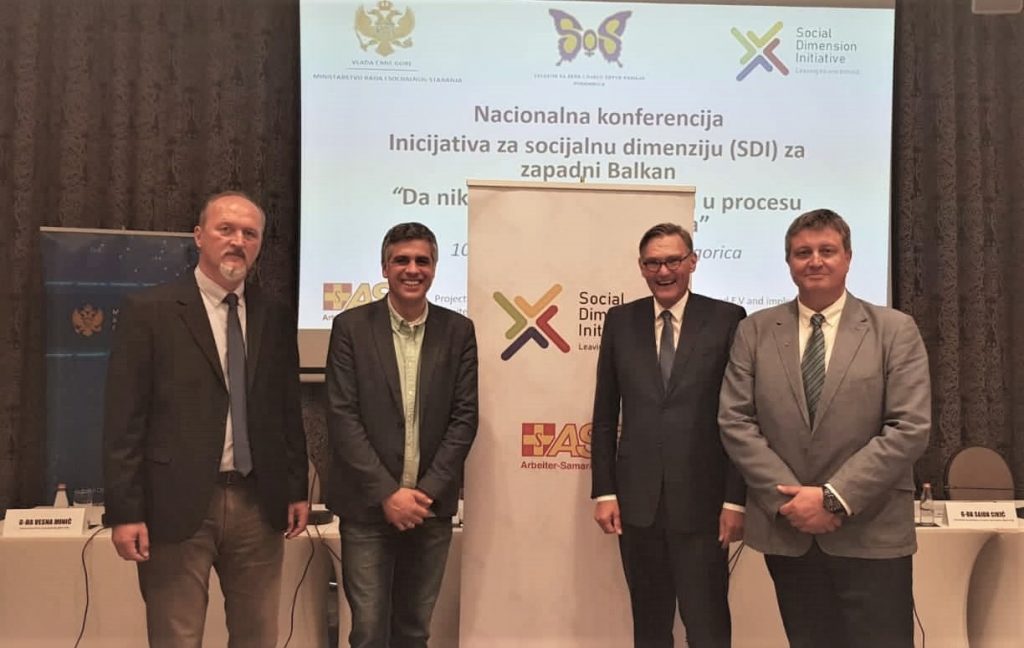
Next National Conference under the SDI project will take place in Sarajevo, on May 22nd.

ASB is a German aid and welfare organisation, engaged in areas such as civil protection, rescue services and social welfare services. As a non-political organisation, ASB has, since its foundation in 1888, provided rapid and direct help to all those in need of our support.
Address:
ASB SEE Main Office Sarajevo, Aleja Bosne Srebrene 4, 71 000 Sarajevo, Bosnia and Herzegovina
Tel:
+387 (0)33 468 366
E-mail: